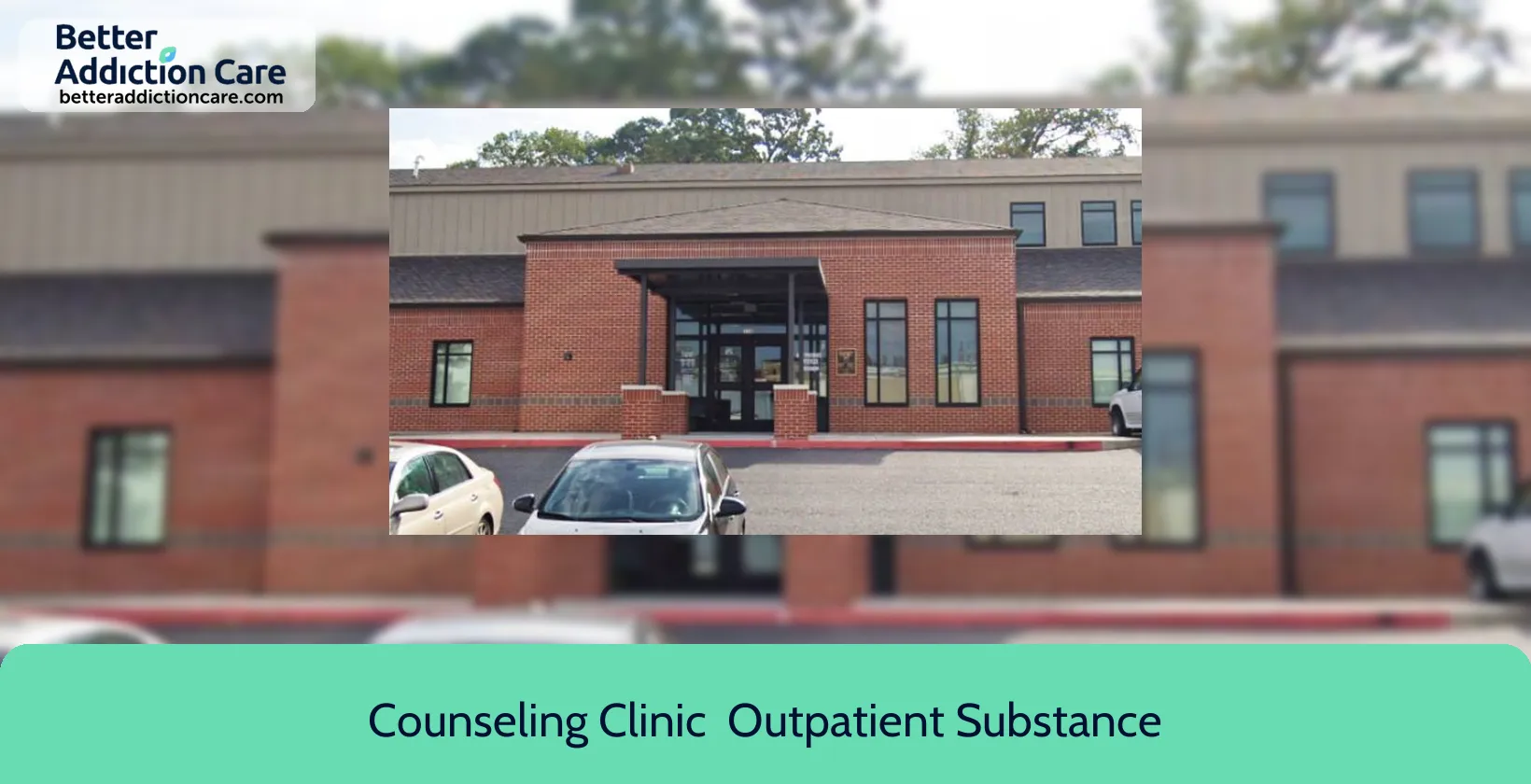Overview
Counseling Clinic Inc. offers both adult and pediatric clients complete mental health and drug-use treatment services. It is situated in Benton, Arkansas. As an institution with various sites and CARF accreditation, they maintain high standards in providing exceptional care. Based in Benton, its outpatient services address a range of mental health conditions and drug abuse problems.
Counseling Clinic Inc. provides an outpatient treatment program with four individual sessions and eight group sessions for people with drug use problems. Clients might choose to continue counseling for continuous assistance after finishing the original program. The clinic directs clients to the proper medical services if they need medical supervision for withdrawal at any point throughout their recovery, enabling them to return for more counseling and rehabilitation.
Additionally, Counseling Clinic Inc. offers school-based counseling programs to address drug abuse and mental health concerns that affect kids' academic achievement. The clinic ensures that young people in educational settings have access to mental health assistance by providing prevention and treatment services for children and adolescents in partnership with the local schools and Juvenile Drug Court.
Counseling Clinic Inc. provides specialized treatment tracks that mix mental health and substance use therapy for those with significant and persistent mental health illnesses, such as bipolar disorder or psychosis. In order to treat co-occurring disorders, which are prevalent in people with severe mental illnesses, a comprehensive strategy is essential.
A board of directors from Saline and Garland counties oversees Counseling Clinic Inc., a non-profit 501C3 Community Mental Health Center that was founded in 1973. A broad group of clinicians with specific knowledge in areas including drug abuse, family troubles, mental illnesses, depression, and anxiety work at the facility.
Counseling Clinic Inc. is dedicated to providing clients with tailored treatment programs that highlight their strengths and enable them to make decisions about their care that are well-informed. The clinic's commitment to provide top-notch treatment and services is shown by its accreditation by the Commission on Accreditation of Rehabilitation Facilities (CARF).
Counseling Clinic - Outpatient Substance Abuse Program at a Glance
Payment Options
- Cash or self-payment
- Medicaid
- Medicare
- State-financed health insurance plan other than Medicaid
- Private health insurance
Assessments
- Comprehensive mental health assessment
- Comprehensive substance use assessment
Age Groups
- Seniors or older adults
- Young adults
- Children/adolescents
- Adults
- Seniors
Ancillary Services
- Court-ordered outpatient treatment
- Family psychoeducation
- Suicide prevention services
- Therapeutic foster care
Highlights About Counseling Clinic - Outpatient Substance Abuse Program
6.68/10
With an overall rating of 6.68/10, this facility has following balanced range of services. Alcohol Rehabilitation: 8.00/10, Drug Rehab and Detox: 6.00/10, Insurance and Payments: 6.00/10, Treatment Options: 6.73/10.-
Alcohol Rehabilitation 8.00
-
Treatment Options 6.73
-
Drug Rehab and Detox 6.00
-
Insurance and Payments 6.00
Accreditations
Commission on Accreditation of Rehabilitation Facilities (CARF):

CARF accreditation is a prestigious recognition for organizations in rehabilitation and human services. It signifies that an organization meets rigorous quality standards and is committed to providing top-notch care. Achieving CARF accreditation involves a thorough evaluation process, including on-site surveys, to ensure excellence in programs and services. This accreditation boosts an organization's credibility, assures clients and funders of quality, and promotes ongoing improvement in the field of rehabilitation and human services.
Treatment At Counseling Clinic - Outpatient Substance Abuse Program
Treatment Conditions
- Alcoholism
- Mental health treatment
- Substance use treatment
- Co-occurring Disorders
- Opioid Treatement
Care Levels
- Outpatient
- Detoxification
- Outpatient detoxification
- Outpatient day treatment or partial hospitalization
- Hospital inpatient/24-hour hospital inpatient
Treatment Modalities
- Couples/family therapy
- Group counseling
- Cognitive behavioral therapy
- Dialectical behavior therapy
- Telemedicine/telehealth therapy
Ancillary Services
Languages
- Sign language services for the deaf and hard of hearing
Special Programs
- Clients with co-occurring mental and substance use disorders
- Veterans
- Active duty military
- Criminal justice (other than DUI/DWI)/Forensic clients
- Clients who have experienced trauma
Contact Information
Read our Most Recent Article About Drug Addiction
DISCLAIMER: The facility name, logo and brand are the property and registered trademarks of Counseling Clinic - Outpatient Substance Abuse Program, and are being used for identification and informational purposes only. Use of these names, logos and brands shall not imply endorsement. BetterAddictionCare.com is not affiliated with or sponsored by Counseling Clinic - Outpatient Substance Abuse Program.









